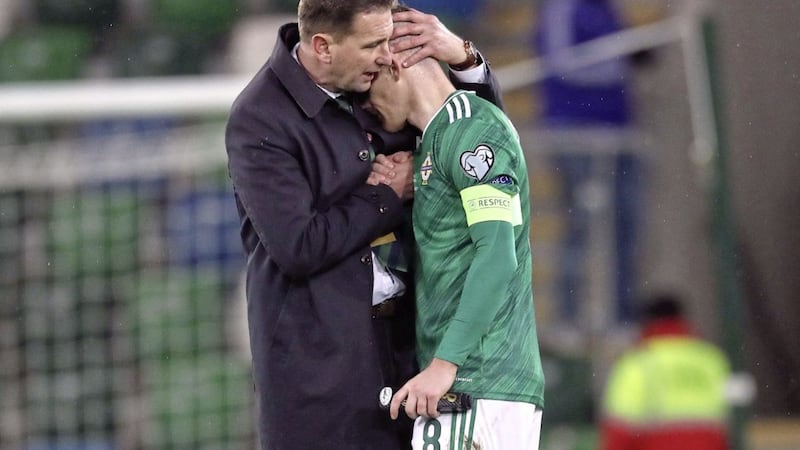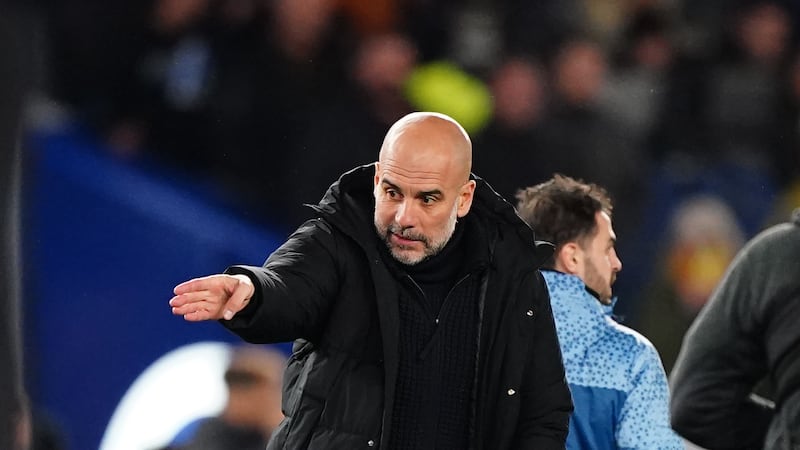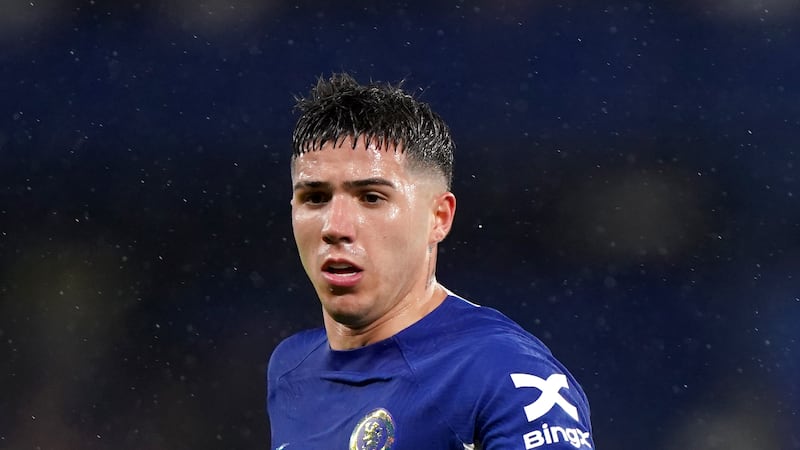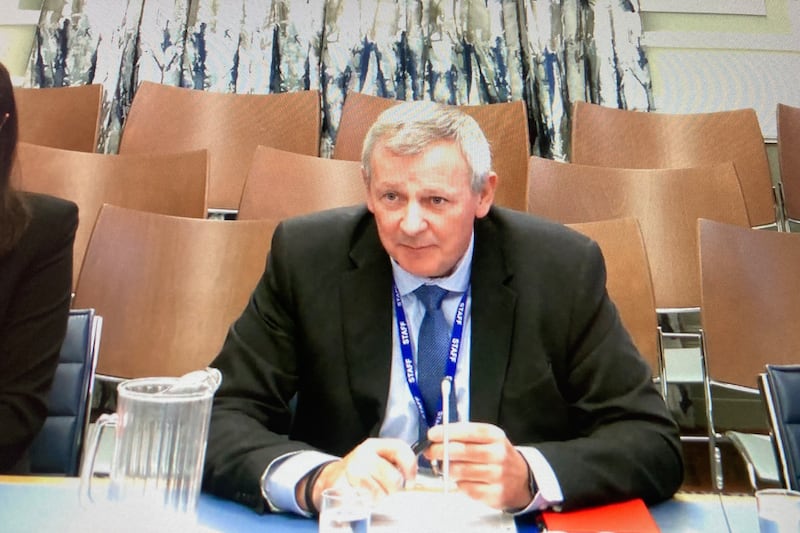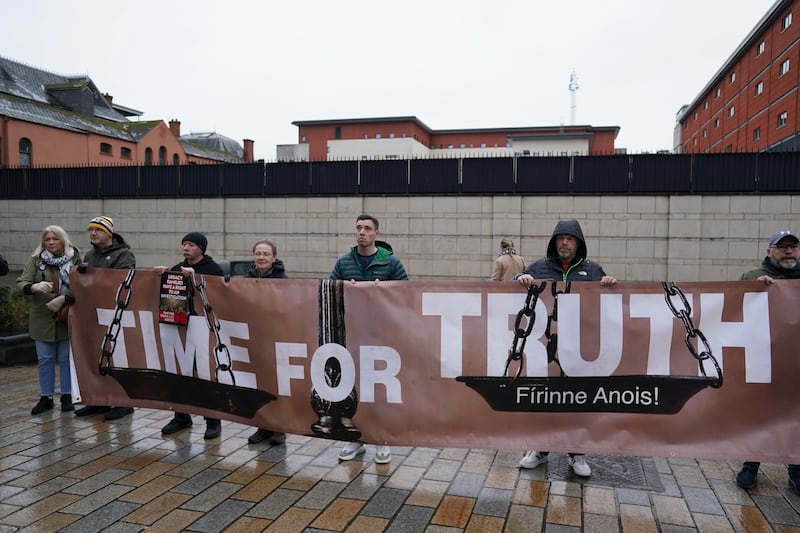THE width of a post…
Northern Ireland were rarely far away from decent results in 2020 but never closer to a brilliant one than the closing moments of normal time in the Euro play-off final against Slovakia.
Kyle Lafferty would have been a remarkable hero, playing just one week after the death of his beloved sister Sonia, but the striker's well-struck shot in the 90th minute hit the wrong side of the post as far as the hosts were concerned.
Rather than Northern Ireland heading down the road to Dublin for two games in Euro 2020/21 (and one in Spain), another substitute, Slovakia's Michal Duris, sank the hopes of the Green and White Army with an extra time winner and secured that tournament spot.
A subsequent defeat in Austria, then a home draw against Romania, both from winning positions, seemed to sum up the overall awfulness of 2020 for Northern Ireland.
Yet worse was to come with a stinking World Cup qualifiers draw, pitting Ian Baraclough's men against Italy, Switzerland, Bulgaria, and Lithuania.
The only saving grace from that Group C is its five-team nature, meaning no competitive triple-headers during the truncated qualifying process in 2021, although there will still probably be a friendly or two stuck into the schedule.
The strain of playing three matches inside a week, in both October and November, understandably stretched NI's limited squad, limited in terms of top level players.
Having said that, even after the high of winning their Euro play-off semi-final, then the low of losing the final five weeks later, the panel still produced gutsy performances in two Nations League double-headers, even if they received little or no reward for their efforts.
Results-wise, the only real positive came out in Bosnia & Herzegovina, the penalty shoot-out success in Sarajevo in that long-awaited Euro play-off semi-final.
Niall McGinn scored an equaliser against over-confident hosts and, after goalkeeper Bailey Peacock-Farrell did his bit, Liam Boyce stepped up to strike the winning spot-kick in style.
Yet given the manner of that win, arguably there was no actual victory from eight matches under the new boss, with two losses each against Austria and Norway and then that extra time defeat by Slovakia.
There was little doubt that the enforced limitations on spectator numbers adversely affected the team's performances, especially at Windsor Park.
Even without away fans in Sarajevo, the visitors showed spirit, but back in Belfast they were mostly flat and lethargic, certainly in the first halves of games.
The one early goal scored by the men in green at home was still only a response to an even earlier Norwegian score – and was met by a barrage of sharp-shooting from Erling Haaland and Alexander Sorloth.
The Bosnia game came far too late for Michael O'Neill, who had signalled he would take charge on its original date in late March but eventually confirmed his drawn-out departure from the role on April 22, almost half a year after becoming Stoke City boss.
Baraclough had been due to travel to Bosnia with the senior party so it was little surprise when he stepped up to succeed O'Neill in June, although he had to wait more than two months before overseeing an actual match.
Even before his introductory media conference – online, of course – the new manager had to face a familiar old problem, the decision of a promising young player to declare for the Republic of Ireland.
The departure of Mark Sykes hurt for several reasons, including that he was from Belfast not Derry as most of the previous switchers had been, and that he was a young prospect who'd secured a move to England (with Oxford United).
Mostly, though, it was a personal blow to Baraclough, who'd worked with Sykes during his successful time as U21 boss.
However, another Belfast lad who'd gone to Oxford (before moving on to Cardiff City), Gavin Whyte, gave 'Bara' a bright beginning to his senior career, scoring a late equaliser away to Romania.
That result appeared to indicate the change in management would still mean 'more of the same' from Northern Ireland, with the point secured despite going 1-0 down and playing more than half with match with 10 men after the dismissal of Josh Magennis.
Back in Belfast, though, it was back down to earth with a bump – five of them in fact, as Norway romped to a clinical 5-1 victory, although there were mitigating factors, with some players absent and those present clearly lacking sharpness after the reduced pre-season.
The real focus was on Bosnia & Herzegovina and progressing from that was an admirable achievement, although the visiting players acknowledged that the presence of around 2,000 home fans lifted them as much as their hosts.
Performances continued to swing back and forth, up and down, although a downturn after the euphoria in Sarajevo was more than excusable. Poor at home to Austria, fortunate to lose only 1-0, a depleted, makeshift team was then unlucky to lose by the same scoreline out in Norway because of an own goal.
In truth, though, luck – good or bad – wasn't really a factor in the play-off final loss to Slovakia.
An unwise header back towards his own goal from midfielder George Saville let in Juraj Kucka for an early opener and it was only late in the game that NI threatened at all, with great work from Paddy McNair forcing a late, equalising own goal from the otherwise imperious Milan Skriniar.
Lafferty then almost stole a stunning victory, but in terms of footballing fine margins the outside of the post is some distance from the inside.
Unsurprisingly the squad travelled to Austria with heavy hearts but credit to Baraclough, he has clearly maintained the same spirit shown under O'Neill.
Even with eight changes to the starting side, including big names such as Steven Davis and Jonny Evans on the bench, the visitors led through a Magennis finish. Then a clearly offside goal – and the absence of VAR in the Nations League – turned the game out in Vienna, allowing the hosts an equaliser; they went on to score a winner moments later.
Relegation to League C was confirmed hours before the final game, at home to Romania, and again a winning position was let slip by conceding a late equaliser. Baraclough shipped some criticism for his changes in personnel and formation, but balancing out the demands of clubs and country in what was, by then, an almost meaningless match was important too.
Before leaving behind the largely awful 2020, some praise to the squad and their support network for staying Covid-free; their discipline and sacrifice deserved better rewards.
Looking ahead to this year, the start of the World Cup campaign is as tough as they come, away to Italy, although at least there's a six-day gap until the second match, at home to Bulgaria. The same timeframe applies to the second international window, in September, away to Lithuania and home to Switzerland, before two tighter double-headers next October and November, the first of those with both matches away, the second with both at home.
Boyce has made a strong case to be the starting centre-forward, and his cause might even be helped by Baraclough's liking for three at the back. That system allows for two up top, with wing-backs rather than wide midfielders/ wingers on the flank, with the west Belfast man well able to drop towards midfield and link play as well as lead the line.
The performances of Michael Smith, transformed from third choice right back into an impressive defensive midfielder, also offer an interesting tactical option for Baraclough as he seeks to turn defeats into draws and draws into victories.
A new year always marks a turning point for two key Northern Ireland players – skipper Steven Davis and defensive linchpin Jonny Evans. The former turned 36 on New Year's Day, the latter became 33 on January 3.
'Davo' has offered no indication that he'll retire, and Baraclough has emphasised the condensed nature of this World Cup qualification campaign, but 2021 will almost certainly be a farewell year for the Rangers man.
Leicester City's Evans is playing as well as ever, and at a high level, having signed a contract extension with the Foxes, so he can continue to be the defensive leader.
Two young players who impressed in 2020, defender Daniel Ballard and midfielder Ali McCann, can learn much from those senior stars, with a view to stepping into their roles in the future.
For some others, the time is now to step up significantly on the international stage and show maturity on and off the pitch. Gavin Whyte will be 25 at the end of January, Jordan Jones is already 26. Those two could look to Stuart Dallas as a good example – 30 this year, the Leeds United man has climbed through the divisions to the top flight.
Moving up again is the challenge for NI now too. A touch of wood went against Northern Ireland in 2020; they'll need much more luck to make 2021 memorable for the right reasons.
2020 RESULTS:
(Nations League 2020/21 unless stated otherwise):
Sept 4: Romania 1-1 NI
Sept 7: NI 1-5 Norway
Oct 8: (Euro 2020 play-off semi-final) Bosnia & Herzegovina 1-1 NI (NI win 4-3 on pens, aet)
Oct 11: NI 0-1 Austria
Oct 14: Norway 1-0 NI
Nov 12: (Euro 2020 play-off final) NI 1-2 Slovakia (aet)
Nov 15: Austria 2-1 NI
Nov 18: NI 1-1 Romania
2021 Fixtures:
(World Cup 2022 qualifiers):
Thursday March 25: Italy v NI
Wednesday March 31: NI v Bulgaria
Thursday September 2: Lithuania v NI
Wednesday September 8: NI v Switzerland
Saturday October 9: Switzerland v NI
Tuesday October 12: Bulgaria v NI
Friday November 12: NI v Lithuania
Monday November 15: NI v Italy
